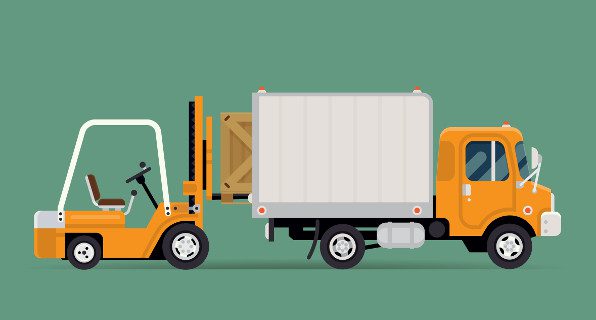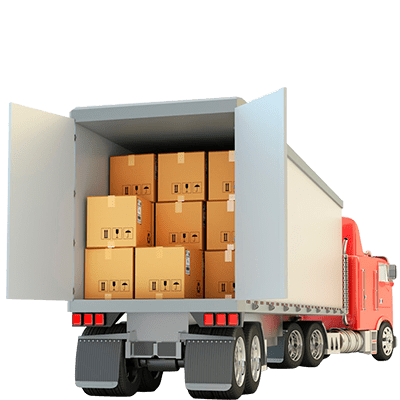The Exciting HI-TECH Future Of Truckload Transportation – A Glimpse 2020
Table of Contents
FUTURE OF TRUCKLOAD TRANSPORTATION
It is an ever evolving, changing, growing, metamorphosing society that we live in today. This is specially true with regard to technology that is constantly evolving exponentially. The technological market a decade back was very different. The phones and tablets were not as evident and widely used then.
However, barely a decade later, today, smartphone technology has taken over every aspect of life, and every house today has internet access. This unprecedented growth in the field of technology has brought about huge advancement and development in the logistics industry too.
These constantly evolving technological changes, and the associated future aspects, and change in the trends, naturally lead to further levels of growth and development that can be tapped into with the help of advance technology

Truckload Transportation Methods and Current Scenario
Over the years, the emergence and advancement of technology has changed the work scenario completely. The ideas of 3D printing, IoT, Data analysis, Mobile-App based business have already been implemented or are getting implemented. Under the circumstances, logistics industry cannot be left behind. The logistics industry too has embraced these changes and re-invented itself.
In the earlier times, the entire logistics industry, be it the suppliers, customers, the truck owners or the drivers themselves, all would have to work only on the basis of trust and goodwill. The customers had no guaranteed assurance with regard to timely and safe delivery of goods. The truck owner had no access to any real-time data with regard to the trucks out on their routes. The truck driver had to travel long distances without navigation, and ended up doing extra work and being underpaid.
However, the changing technology has revamped everything. All of these difficulties are gradually being decoded into solutions, thereby making the future of logistics industry brighter, and its growing influence stronger, by empowering the logistics industry with greater efficiency.
Future of Logistics Industry is full of exciting new trends.

truckload transportation truckload transportation
Logistics and Truckload Transportation Industry and Unfolding Future Trends
Here are some trends that will be leading the headlines of the logistics industry, in the near future:-
1. Vehicle Interface Akin to Uberization
There is an ongoing interface of trucks/vehicles with transportation technology through web and mobile apps medium, akin to Uber transport systems. There is an end to the co-dependency on brokers as the shippers can book trucks which are closer to their locations, directly, with the help of mobile apps. A technically driven, web-based or mobile based application, to match the respective requirements and enable direct communication, is all that is needed between the concerned parties.
Truck drivers are required to scale the truck’s weight on a way-bridge regularly, and put up the current weight they are loading on their way to the destination, and thus keep track of the weight record. It can be done at every loading/unloading point. The completed weight record can be inserted and uploaded as information for shippers to look at and match with their order. Truck scaling is pivotal in this process.
2. System Security
Cloud technology enables quick and easy transfer of data over the internet. This makes it very easy for warehouse and logistics management solutions to transmit their data over the Internet, and thereby become vulnerable to cyber-attacks. Hence it is critical for the logistics system and network administrators to keep their systems robust, secure and ready to tackle all kinds of Cyber-attacks.
System Security is of primary importance in keeping these vulnerabilities at bay. It is imperative for solution providers to be aware of all Cyber-threats, monitor the systems round the clock, and rectify the threats promptly.
A rapid growth in the integration of robotics, and intelligent material handling equipment is set to unfold in the next ten years. There will be an integration of work environment with advance technology that will call in more tech-savvy people to handle these advance technological supported equipment on a much larger scale.
Every activity will create a digital footprint. Hence supply chains will become more reliable, efficient and cost-effective for all the parties involved.
3. The Internet of Things aka IoT
Internet of Things (IoT) is a revolutionary technology that allows devices to communicate with each other, within an existing internet infrastructure, without human intervention. Application of IoT in the logistics sector is expected to increase speed and efficiency, and decrease time and reduce overall costs. With the machines communicating on their own, problems can be identified earlier, and solutions can be acted upon faster, and with greater efficiency.
For instance, suppose information was available on when tyres would need to be changed, based on their active health that is monitored, or on the exact time period in which the engine would need to be serviced, to keep the overall performance of it at the optimal best level, based on the active health data collected, it would greatly help truck owners, suppliers, to reduce overall costs and maintain efficiency. This would naturally benefit the customers too by providing them reliable services.
truckload transportation truckload transportation
4. Drones, the Future of Delivery
Drones are being developed by various companies. Tests have been successful. FPS Distribution successfully completed the first commercial delivery using a drone, on March 13, 2015, in Sheffield. The accuracy and the performance of these drone deliveries has already impressed all the experts and analysts in the market.
Drones are set to make a place of their own in the logistics industry. Drones are poised to be the best option for the supplier when the product to be delivered is larger in size. Also, Drones can be designed to deliver the products at the doorstep in the most hassle-free way.
5. Driverless Vehicles Set to Make an Exciting Entry
Driver-less vehicles are the future, irrespective of the debate around them. Market leaders and leading companies have tried and tested these. Electric carmaker Tesla unveiled a sleek electric semi-truck with semi-autonomous capabilities and a new roadster. This semi-truck is a fully electric, Class 8 truck, a category of freight vehicles that weighs more than 33,000 pounds. It includes tractor-trailer rigs that
form the backbone of commercial road freight. According to Elon Musk, it can haul 80,000 pounds. Its safety features include:
- Automatic braking
- Lane tracking
- “Nuclear explosion-proof glass” for the windshield
The controversy around driverless vehicles is with regard to the dramatic decrease in the amount of human employment per se drivers, thereby reducing jobs and creating unemployment. However, a different perspective says that these driverless vehicles are the best option when the road or the route is not safe for the drivers. And this is a very valid point with regard to safety of human life.
Conclusion
Technology empowers the world today by creating better, safer and more efficient systems. Internet has revolutionized the market with its web and mobile-based apps. The logistics industry greatly benefits in the long term as technological support brings about higher levels of efficiency and productivity in the logistics sector as a whole.
Protecting the systems from vulnerabilities of cyber-attacks and other such collapses by securing them, monitoring them and upgrading them is the only primary precaution needed. IT sector provides a wide range of such solutions, considering the amount of market created, based on technology.
As technologies grow and evolve, the future of the logistics industry and truckload transportation looks promising and exciting
Blog- The Exciting HI-TECH Future Of Truckload Transportation – A Glimpse 2020
Powered By 360Presence
truckload transportation truckload transportation




